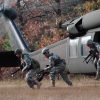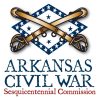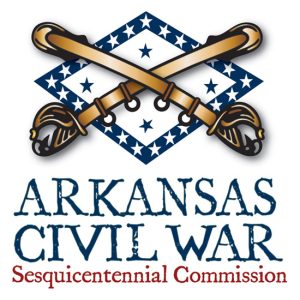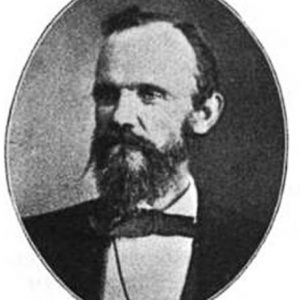calsfoundation@cals.org
Robert Crittenden Newton (1840–1887)
Robert Crittenden Newton was a noted Confederate officer who served in several roles during the Civil War. He attained the rank of colonel and led a brigade during part of his service.
Robert C. Newton was born on June 2, 1840, in Little Rock (Pulaski County) to U.S. Representative Thomas Newton and Mary Allen Newton. He had three brothers and a sister. Thomas Newton died in 1853, and Mary Newton married James Johnson, a planter.
Newton studied at the Western Military Institute in Tennessee and with private tutors in Little Rock before serving as the deputy clerk for the Pulaski County Circuit Court. Studying for the bar at the same time, Newton became a lawyer in 1860.
While practicing law, Newton also joined a local militia unit. First known as the Totten Light Artillery, the battery became the Pulaski Light Artillery after the surrender of the Little Rock Arsenal by Captain James Totten. Newton was elected as the first captain of the unit, with William Woodruff Jr. serving as lieutenant. With the outbreak of war in 1861, Newton resigned from the unit and received a commission in the Confederate army with the rank of captain. During the secession crisis of 1861, Newton traveled throughout the state to raise support for leaving the Union. A friend of Thomas C. Hindman, Newton was named his assistant adjutant general and chief of staff with the rank of major when Hindman took command of the District of the Trans-Mississippi in May 1862.
From the district headquarters in Little Rock, Newton worked with other officers to gather troops in order to oppose the Union’s Army of the Southwest as it made its way across northern and eastern Arkansas. In an effort to deceive the Federal forces about the lack of Confederate troops in the state, Newton organized civilians to write fictitious letters to relatives and friends serving in the army. Knowing that these letters would fall into Union hands, the authors wrote about the overwhelming reinforcements arriving in Little Rock, along with large amounts of war materiel.
Hindman and Newton were successful in organizing new regiments, and they prepared to defend the state against Federal invasion. Replaced by Major General Theophilus Holmes as the commander of the department, Hindman received command of the District of Arkansas. Serving on Hindman’s staff at the Battle of Prairie Grove, Newton requested a field command after his superior received a transfer to Mississippi in early 1863.
Newton organized the Fifth Arkansas Cavalry and served as the colonel of the regiment. During this period, Newton and his regiment participated in a raid into Missouri, where he captured Unionist leader and future Arkansas governor Elisha Baxter. Newton escorted Baxter to Little Rock to await trial on charges of treason.
In the summer of 1863, the regiment moved into eastern Arkansas as part of a Confederate army to attack Helena (Phillips County). The Fifth Arkansas served with another Arkansas regiment to form a cavalry brigade under the command of Brigadier General Lucius Walker during the July 4, 1863, Battle of Helena. The regiment did not report any casualties after the engagement.
Newton led his unit during the Little Rock Campaign in August and September 1863. On August 17, several hundred members of the regiment were surprised by Federal cavalry near Clarendon (Monroe County). While most of the men escaped, numerous weapons, horses, and other equipment were captured. As the Union troops approached Little Rock, Newton’s men patrolled the areas east of the city to gather intelligence on enemy movements. During the campaign, Newton alternated between commanding his regiment and overseeing the entire brigade. He commanded troops at the Skirmishes at Ferry Landing and Shallow Ford, where Federal troops were able to cross Bayou Meto.
After the fall of Little Rock to the Union in September 1863, Newton retreated with the rest of the Confederate army to the southwest before establishing his headquarters at Tulip (Dallas County). In October 1863, Newton led a division of cavalry from Arkansas, Texas, and Missouri at the Action at Pine Bluff. Later that year, Newton turned command of the regiment over to Thomas Morgan and took a position as the assistant adjutant general on the staff of Lieutenant General Edmund Kirby Smith in Shreveport, Louisiana, on April 5, 1864. He served in this role during the Camden Expedition and Red River Campaign, sending orders to units in the field.
Returning to active service in September 1864, Newton commanded Arkansas State Troops at Washington (Hempstead County) before moving those units to Arkadelphia (Clark County) and Rockport (Hot Spring County). By November, Newton was operating in the Arkansas River Valley, where his unit attacked the steamer Alamo. In January 1865, the regiment fought a detachment of the Eleventh U.S. Colored Troops at the Skirmish at Boggs’ Mills. By the spring of 1865, Newton’s command was once again in southwestern Arkansas.
At the conclusion of the war, Newton was indicted for treason along with Hindman and several other Confederate generals. The threat of arrest never materialized, however, and Newton was elected to the Arkansas General Assembly in 1866. Over the next several years, Newton remained active in politics as he joined efforts opposing Reconstruction in the state. Returning to the practice of law, he married Cassandra Reider, and the couple had a daughter and a son.
With the election of Elisha Baxter as governor in 1874, Newton received an appointment as major general in the state militia. During the ensuing Brooks-Baxter War, Newton led the forces supporting Baxter in several engagements. After Baxter returned to power, he appointed Newton to the office of state treasurer. At the conclusion of his term, he returned to his law practice.
He died in Little Rock on June 2, 1887, and is buried in Calvary Cemetery.
For additional information:
Christ, Mark. Civil War Arkansas, 1863: The Battle for a State. Norman: University of Oklahoma Press, 2010.
Neal, Diane, and Thomas Kremm. The Lion of the South: General Thomas C. Hindman. Macon, GA: Mercer University Press, 1993.
David Sesser
Henderson State University










Comments
No comments on this entry yet.